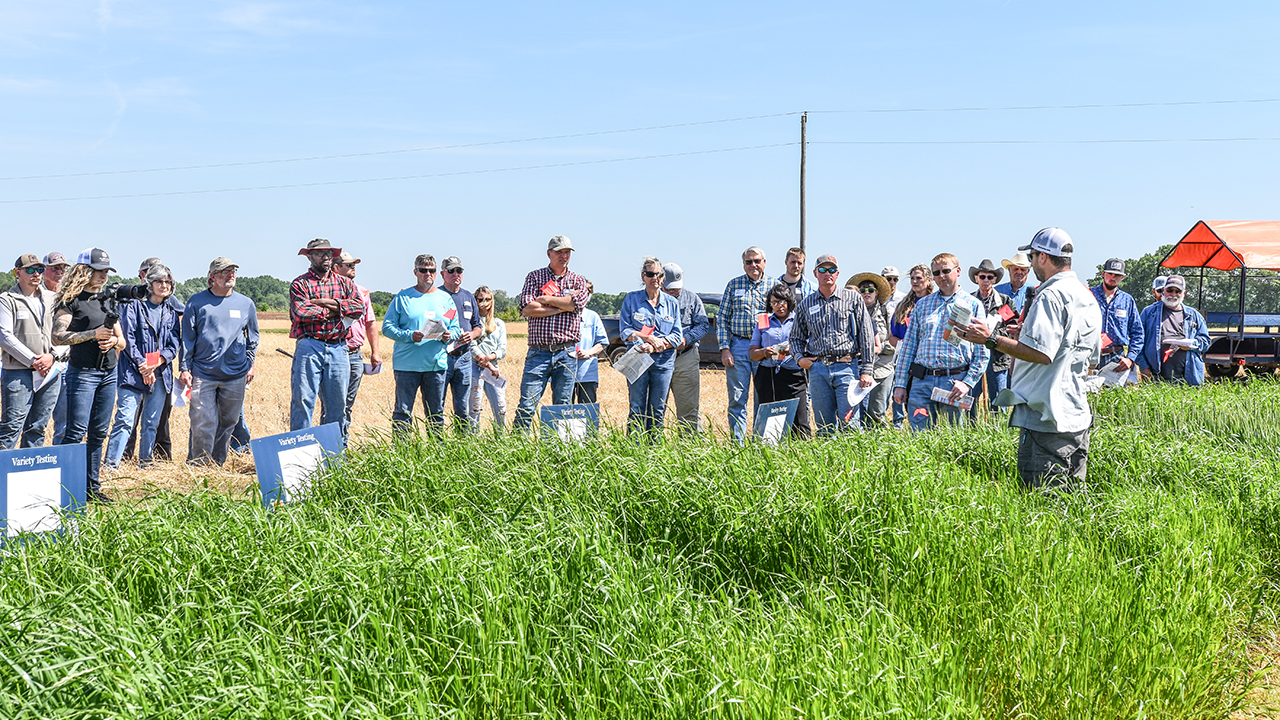Auburn University
Variety Testing Program

Variety selection is the most important decision a farmer can make. If farmers want to be successful, they must ensure that they plant varieties that are well adapted. If a farmer selects the wrong variety, the results can be catastrophic. Typically, farmers do not have the resources to conduct variety trials in addition to their normal growing season activities.
Variety evaluation is also critical to plant breeders, both from universities and industry. Prior to releasing a new variety, these breeders typically evaluate their lines in independent variety trials. This ensures that they have unbiased data from multiple years and locations to support the release of their new variety.
The mission of the Auburn University Variety Testing Program is to provide research-based, unbiased results on the performance of various crop hybrids, cultivars, and varieties to the agricultural community in Alabama. We are intent on conducting these trials in a manner that will result in maximum biological yield through methods common to the top-producing farms in Alabama.
We are committed to providing this information in a timely manner for its use during the decision-making process. The success of the program rests on our ability to help Alabama producers provide a safe, dependable source of food and fiber for all families as well as an economic sustainability for theirs.

Henry Jordan
Variety Testing Manager, Research Associate IV
Subscribe to AU Variety Testing Updates
Annually, the Auburn University Variety Testing Program conducts trials on corn, cotton, soybeans, peanuts, grain sorghum, wheat, barley, oats, triticale, small grain forages, and ryegrass.
Trials are conducted on Auburn University owned and operated agricultural research stations across the major geographical regions of the state. The research conducted at each of these locations can provide stakeholders with data that can be more representative of their growing conditions.
2025 Black Belt Beef & Forage Field Day
Join us for the 2025 Beef & Forage Field Day, a premier event for livestock and forage producers across Alabama! Hosted by the Alabama Cooperative Extension System, this free, hands-on field day will showcase the latest in forage management, cutting-edge research,...
Performance of Grain Sorghum in Alabama, 2025
September 18 - Results for the Late Planted OVT at the Wiregrass Research & Extension Center (WREC) in Headland are available.September 12 - Results for the Early Planted OVT at the EV Smith Research Center (EVSRC) in Shorter are available. August 22 - The first...
Performance of Corn Hybrids in Alabama, 2025
September 18 - The following corn OVT results are available. Grain Quality Results (Crude Protein, Starch, Moisture, Fiber, Ash, Fat - Variety selection tool only) Brewton Agricultural Research Unit (BARU) in Brewton Non-Irrigated Prattville Agricultural Research Unit...
Performance of Peanut Varieties in Alabama, 2025
August 20- Tomato Spotted Wilt Virus (TSWV) Ratings for Peanut OVTs Now Available TSWV ratings for this season’s peanut Official Variety Trials (OVTs) are now available. These ratings are provided courtesy of Extension Pathologist Amanda Scherer and Research Associate...
2025-2026 OVT Winter Entry Forms – Forages & Grain
August 1 - Entry forms for the 202-2026 season are available. Select the tab(s) of interest below for details and options for forage and/or grain. Seed treatments are permitted but must be labeled and accompanied by MSDS sheets. Once the entry form has been completed...
Performance of Soybeans in Alabama, 2025
July 14 - Iron deficiency chlorosis (IDC) ratings are available for the IDC soybean trials at the Black Belt Research and Extension Center (BBREC) in Marion Junction. Iron chlorosis ratings are located under the ratings tab in the variety selection tool. They are...



